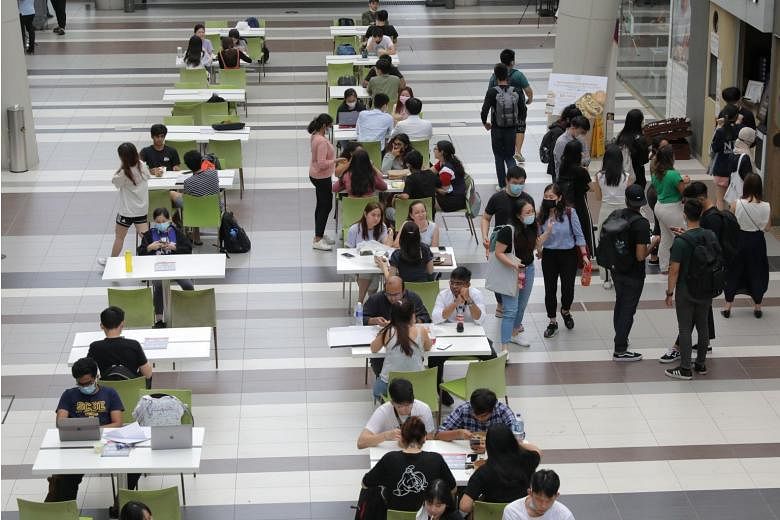SINGAPORE - To defend youth here against the threats of online radicalisation from abroad, the authorities constantly reach out to them through social media and online platforms to help them discern messages that they have come across, said Minister of State for Home Affairs Desmond Tan on Tuesday (Feb 16).
There are also regular outreach efforts in schools and institutes of higher learning, to help students, youth and educators be more aware of such threats, he added.
He was responding to questions in Parliament from various MPs, including Mr Murali Pillai (Bukit Batok) and Mr Desmond Choo (Tampines GRC), on what can be done to protect the young here from such threats.
Mr Tan said there is "no easy foolproof solution", adding that family and friends play a crucial role in providing social support as well.
MPs were responding to the case involving a 16-year-old Protestant Christian youth who was arrested in December last year for plotting terror attacks at two mosques here. He was radicalised by far-right ideology he came across online.
Mr Tan said that the Ministry of Home Affairs has been working closely with the Ministry of Education to engage younger Singaporeans as part of SGSecure, the national terrorism awareness movement.
"All schools have a framework to drive SGSecure initiatives, which is overseen by school leaders. Age-appropriate SGSecure content is incorporated into storybooks and card games for students, as well as assembly talks and mobile exhibitions by Home Team agencies," he added.
The Internal Security Department (ISD) has also been working with schools, institutes of higher learning and community organisations since 2007, to conduct counter-terrorism and counter-radicalisation workshops and seminars.
The programme continued during the pandemic, with efforts shifting online, such as webinars for educators in institutes of higher learning last year.
Mr Tan added that workshops for school counsellors have been held since 2016.
"As of 2019, over 260 school counsellors in secondary schools, as well as a number of student welfare officers, have attended the workshops," he said.
Community partners such as the Religious Rehabilitation Group (RRG) also conduct outreach activities targeted at students and young people.
The RRG works with schools to organise assembly talks, workshops and visits to the RRG Resource and Counselling Centre. Since the pandemic, the group has furthered its digital outreach efforts, producing over 60 online lectures and videos.
Mr Tan said topics on racial harmony are also taught in classrooms. For example, as part of the refreshed Character and Citizenship Education (CCE) curriculum, secondary school teachers receive specialised training to facilitate discussions on contemporary issues, such as race and religion, to hone students' perspectives.
"All schools will also establish a peer support structure by 2022, where students will learn to support each other and be taught upstanding behaviour, speaking up for their peers where necessary, including in instances of racism and hate speech," added Mr Tan.
Efforts to facilitate inter-racial and inter-religious dialogue also continue outside the classroom, said Mr Tan. He cited the Regardless of Race dialogue series organised by OnePeople.sg, and supported by the Ministry of Culture, Community and Youth (MCCY), as one example.
Since 2019, five sessions have been organised, involving a total of more than 500 participants.
In November and December last year, MCCY also organised a Hackathon for Social Cohesion, with over 200 youth pitching ideas and projects on strengthening social cohesion, as well as racial and religious harmony here.
On Tuesday, Mr Tan also highlighted the need to identify early signs of radicalisation, including anyone displaying a keen interest in extremist views, supporting the use of violence to achieve one's agenda, and expressing low tolerance and resentment towards multi-racial and multi-religious living.
"We urge the community to stay alert and to inform the authorities of suspected cases of radicalisation, so that we can intervene early and prevent such persons from harming themselves and others," he said.


